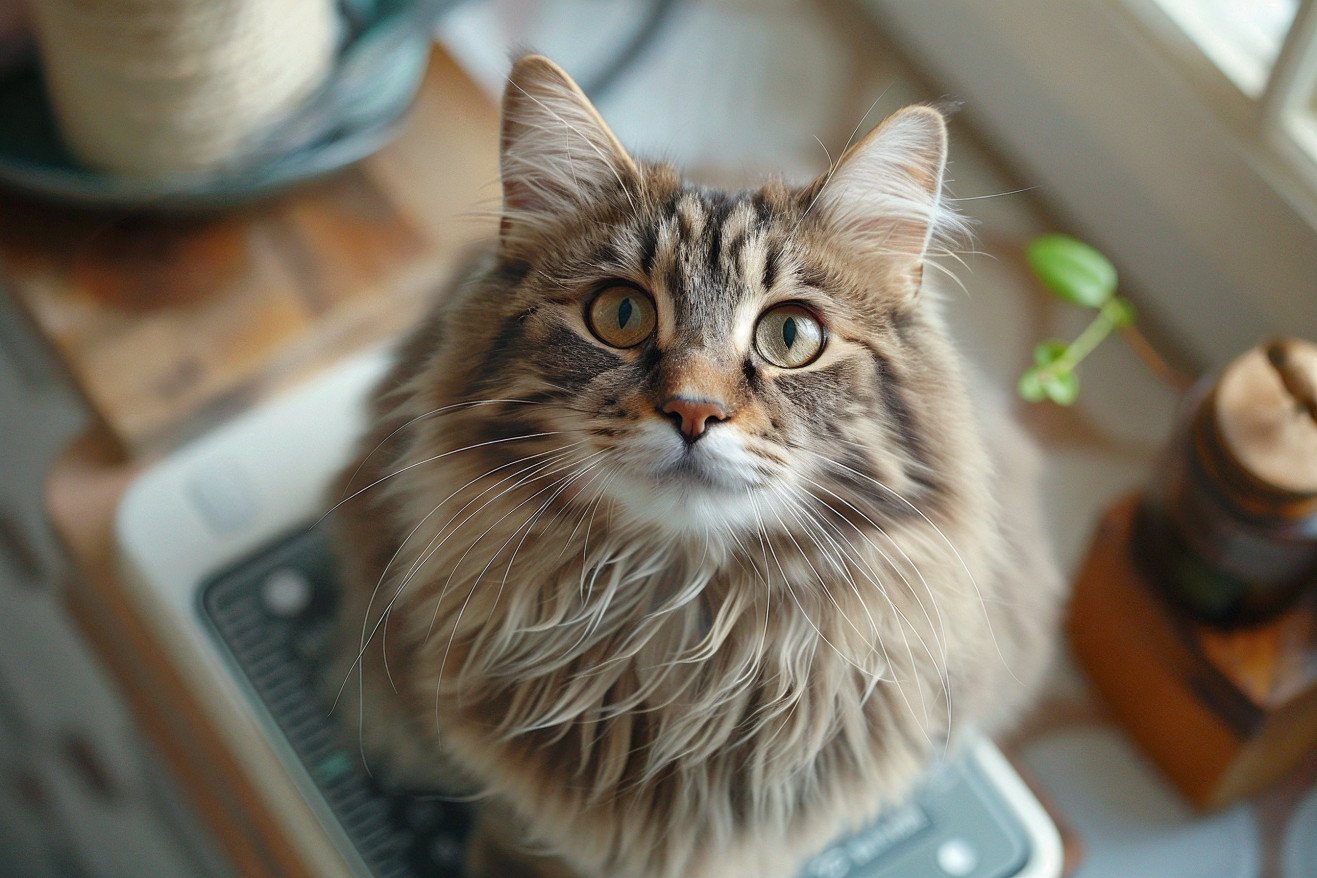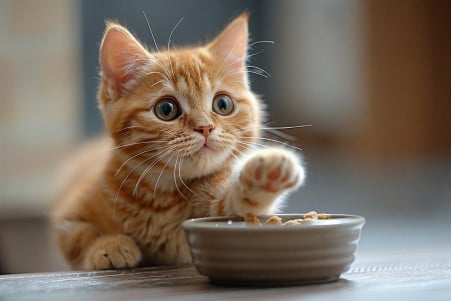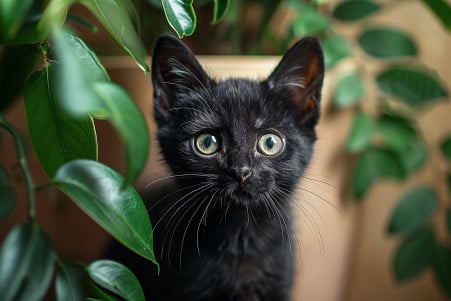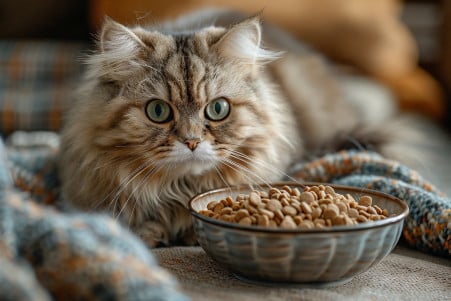Is My Cat Too Skinny? Evaluating Feline Weight and Health
30 May 2024 • Updated 28 May 2024

If you're worried that your cat is too skinny, there are a number of reasons that this could be happening, including everything from diet and exercise to health problems. That said, if you can see your cat's ribs, spine, and hip bones, it is likely underweight. However, other factors like age, breed, and body condition also play a role in whether or not a cat is at a healthy weight.
This article will look at a number of studies from veterinary science and animal behavior to determine what causes cats to gain and lose weight. From what cats eat and how they eat it to the stressors in their environment and medical issues, this article will help you figure out if your cat needs a change in diet or a visit to the vet. By the end, you should have a good idea of what a healthy weight range is for your cat.
Is my cat too skinny?
What Is the Average Weight of a Cat?
There is no one-size-fits-all "average" weight for cats. Healthy weight ranges can vary greatly based on a number of factors, including a cat's breed, sex, age, and body type. For example, according to Purina, the average weight for a domestic shorthair cat is between 8 and 10 pounds, but a Maine Coon can weigh between 12 and 25 pounds when fully grown. On the other hand, a Siamese cat may only weigh between 4 and 8 pounds when it reaches its ideal adult weight.
Instead of relying on weight alone, veterinarians use a Body Condition Scoring (BCS) system to determine if a cat is underweight, overweight, or at an ideal weight. As Catster notes, a cat's weight can also be impacted by other factors, including muscle mass, age, and overall body condition.
While general breed standards from sources like BasePaws and the International Cat Association can be a helpful starting point, the right weight for your cat will depend on their individual body type and condition. That's why it's important to work with your vet to determine the right weight range for your cat.
How to Help an Underweight Cat Gain Weight
If your cat is underweight, the first thing you should do is make sure there are no underlying health issues by visiting the vet. Once you know that your cat is healthy, Hill's Pet Nutrition says that one of the most common reasons for a cat being underweight is that they aren't eating enough. This can be remedied by feeding them more often and/or providing dry food that they can eat whenever they want. Since cats are natural "grazers," having food available all day can help them eat more.
In addition to more frequent meals, PetMD suggests that cats who need to gain weight should be fed a diet that is high in calories and protein. Wet food is often more appealing than dry kibble and can be fed in smaller, more frequent meals. Slightly warming the food or switching between different protein sources can also make the food more appealing. In more extreme cases, a vet may prescribe appetite stimulants or even recommend a feeding tube, according to Daily Paws.
When to See a Vet for Weight Loss
If your cat is losing weight and there is no obvious explanation, it is important to take them to the vet. Weight loss can be a sign of an underlying health problem. Closer Pets points out that gradual weight loss can be hard to detect, so it is important to perform regular at-home checks to monitor your cat's body condition.
Sudden or rapid weight loss can be a sign of a serious health problem that needs to be addressed immediately. Pet Health Network lists common causes of weight loss in cats as gastrointestinal issues, diabetes, hyperthyroidism, organ disease, and cancer. The ASPCA Pet Health Insurance explains that weight loss can also be caused by dental issues, parasites, and age-related issues.
In the most severe cases, a cat that has stopped eating is an emergency situation that can lead to life-threatening liver disease, as reported by Catster. If your cat has experienced sudden, unexplained weight loss or a loss of appetite, it is important to take them to the vet as soon as possible.
Environmental Factors That Affect Cat Weight
A cat's environment and daily life can have a big impact on their weight and eating habits. For example, Closer Pets explains that stress caused by changes in the home, new pets, or a lack of environmental stimulation can cause a cat to eat less and lose weight.
Meanwhile, Purina explains that in homes with multiple cats, it's important to make sure that cats have separate feeding spaces to avoid competition and bullying, which can lead to a cat not eating. On the other hand, more activity and play can help a cat work up an appetite and burn off extra calories, helping them stay at a healthy weight.
Finally, as cats get older, they may need changes in their diet and environment to meet their changing nutritional and activity needs, according to Stroudsburg Vets. Making sure that their environment is stimulating and low-stress and encourages appropriate exercise can be important to helping older cats stay at a healthy weight.
How to Keep Your Cat at a Healthy Weight
Keeping an eye on your cat's weight and body condition is important to make sure they don't become overweight or underweight. You should always consult with your vet to determine the best weight range for your cat. After that, you can make sure that you're feeding them on a schedule and portioning out their food based on their caloric needs.
You can also make sure that they're staying active by playing with them and using puzzle feeders. Make sure that they have plenty of vertical spaces to explore and play on. As your cat gets older, you may need to adjust their diet and exercise routine to make sure that they're staying healthy.


